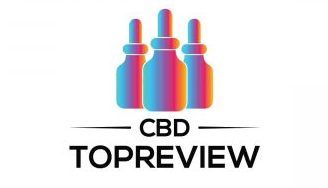16 May 2023. Written by Alexander Parker. Estimated time to reflect on the article: 9 minutes.
Understanding CBD and Its Effects on the Body
CBD, or cannabidiol, is a compound found in the cannabis plant. While it shares the same origins as THC, the psychoactive compound found in marijuana, CBD is non-intoxicating, meaning it won’t get you high. Instead, CBD has become popular as a natural remedy for various conditions, including anxiety, pain, and insomnia.
When you consume CBD, it interacts with your body’s endocannabinoid system (ECS), which is involved in regulating various bodily functions, including mood, appetite, and sleep. CBD can affect the ECS in a number of ways, including increasing the amount of the body’s natural endocannabinoids or blocking the breakdown of those endocannabinoids. It can also affect serotonin receptors, which can help to alleviate anxiety and depression.
If you want to learn more about CBD and its effects on the body, check out this article on CBD topicals where you can find more information.
Different Ways to Consume CBD and Their Impact on Detection Time
One of the factors that can impact how long CBD stays in your system is the method of consumption. When you inhale CBD, for example through smoking or vaping, the effects are typically felt immediately, but they also wear off faster. Edibles, on the other hand, take longer to kick in but can provide longer-lasting effects.
If you’re concerned about drug testing or want to avoid any potential detection, it’s worth keeping in mind that CBD can stay in your system for a certain amount of time after consumption, depending on the method of consumption and the frequency. For example, CBD can stay in your urine for up to a week if you consume it regularly, while it may be detectable in your blood for up to a day or two.
If you’re interested in learning more about the different ways to consume CBD and their impact on detection time, be sure to check out this article on CBD topicals where you’ll find a comprehensive guide on the topic.
Factors That Affect How Long CBD Stays in Your System
Understanding the factors that affect how long CBD stays in your system can help you plan your consumption and avoid any potential detection. One of the most important factors is the frequency of consumption – the more you consume, the longer it will stay in your system. Additionally, the method of consumption can also impact detection time. For example, if you smoke or vape CBD, it may be detectable in your system for up to a week, while oral consumption, like edibles or tinctures, may stay in your system for up to 30 days. You can also check this article on CBD Topicals for more information on how long CBD lasts in your system.
Another factor that can impact detection time is your metabolism. People with a slower metabolic rate may take longer to process and eliminate CBD from their system, leading to longer detection times. Finally, the potency of the CBD product can also impact how long it stays in your system. Products with higher concentrations of CBD may stay in your system for a longer period of time. So, if you’re concerned about drug testing or want to avoid any potential detection, it’s important to consider these factors and adjust your consumption accordingly.
The Role of Drug Tests in Detecting CBD
Drug tests are commonly used by employers, law enforcement agencies, and other organizations to detect the presence of illicit substances like THC from marijuana. However, many drug tests cannot distinguish between THC and CBD, which means that if you consume CBD regularly, it may show up on a drug test. That’s also why you should avoid taking too much of it. Here is one interesting study, is CBD bad for you?.
There are different types of drug tests, but the most commonly used are urine and blood tests. Urine tests are more common and can detect the presence of THC and its metabolites for up to a week after consumption. Blood tests, on the other hand, can detect THC for up to 36 hours after consumption. It’s worth noting that CBD itself is not a controlled substance and is legal in most states, but if you’re concerned about drug testing, it’s important to be aware of how long it stays in your system and adjust your consumption accordingly.
How Long CBD May Stay Detectable in Urine
If you’re a regular user of CBD, you may be wondering how long it stays detectable in your urine. The answer to that question depends on several factors, including the amount and frequency of use, as well as the method of consumption.
In general, if you’re a frequent user of CBD, you can expect it to be detectable in your urine for up to a week or more after you stop using it. However, this can vary widely depending on several factors such as your metabolism, body mass index (BMI), and lifestyle. For example, if you’re physically active, drink plenty of water, and have a healthy diet, you may be able to flush CBD out of your system faster than someone who is sedentary and consumes a lot of junk food.
To be on the safe side, if you’re expecting a drug test in the near future, it’s best to stop using CBD until after the test is complete. Alternatively, you may want to consider using CBD topicals such as CBD cat treats or CBD-infused lotions, which are less likely to show up in a drug test.
Conclusion: What This Means for CBD Users and Drug Testing
While CBD is legal in many states and is generally considered safe, it’s important for users to be aware of how long it can stay in their system. If you’re expecting a drug test or are concerned about being drug tested in the future, it’s best to err on the side of caution and avoid using CBD altogether.
However, if you’re a regular user of CBD and are seeking its therapeutic benefits, there are various ways to minimize the risk of failing a drug test. These include avoiding high-THC CBD products, using CBD topicals or edibles instead of tinctures or oils, and being mindful of how much and how often you consume CBD. Ultimately, it’s up to each individual user to weigh the potential benefits of CBD against the potential risks of drug testing.
Alexander Parker is a screenwriter from Nashville, TN. He is known for his character-driven dramas that explore the complexities of the human psyche.










